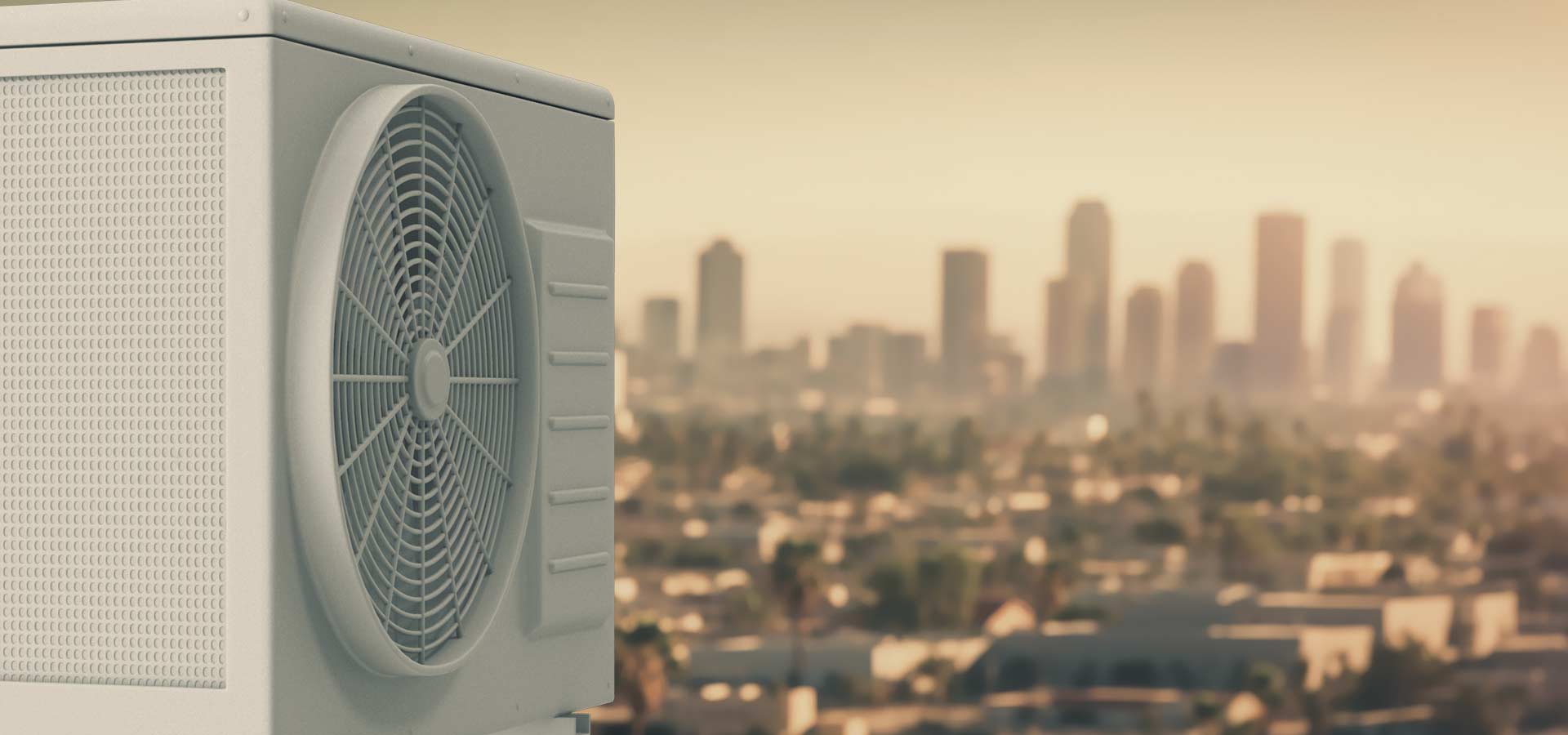Selecting the correct HVAC system size is essential for maintaining a comfortable living environment and ensuring energy efficiency. In this guide, we will provide a detailed overview of how to calculate the appropriate HVAC system size based on square footage, insulation, and climate. By following these guidelines, you can make an informed decision when installing a new HVAC system in your Los Angeles home.
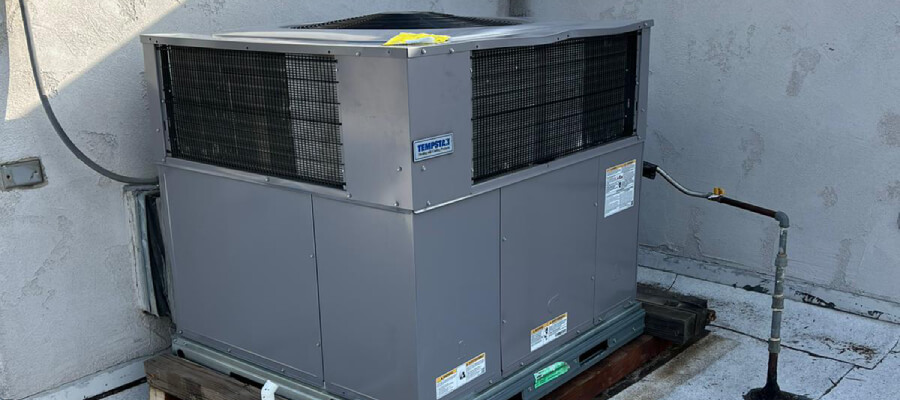
The Importance of Proper HVAC System Sizing
Choosing the right HVAC system size is crucial for several reasons:
- Energy Efficiency: An adequately sized HVAC system will operate efficiently and help you save on energy costs.
- Comfort: A correctly sized system will maintain a consistent temperature and humidity level, ensuring a comfortable living environment.
- System Longevity: An appropriately sized system will experience less wear and tear, increasing its lifespan.
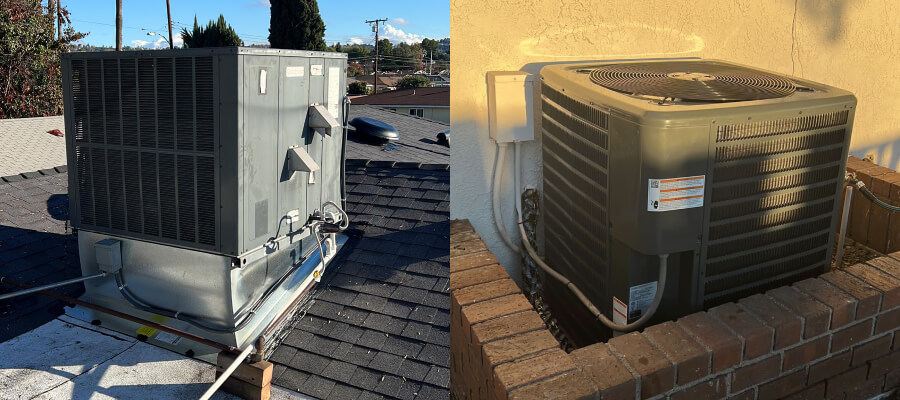
Factors to Take into Account When Sizing an HVAC System
Before you can determine the appropriate HVAC system size, you must consider several factors, including:
- Square Footage: The total area of your home in square feet.
- Insulation: The quality and effectiveness of your home’s insulation.
- Climate: The local climate and its impact on heating and cooling needs.
- Calculating the Square Footage
To calculate your home’s square footage, measure the length and width of each room, then multiply these dimensions to determine the area. Add the area of each room to find the total square footage.
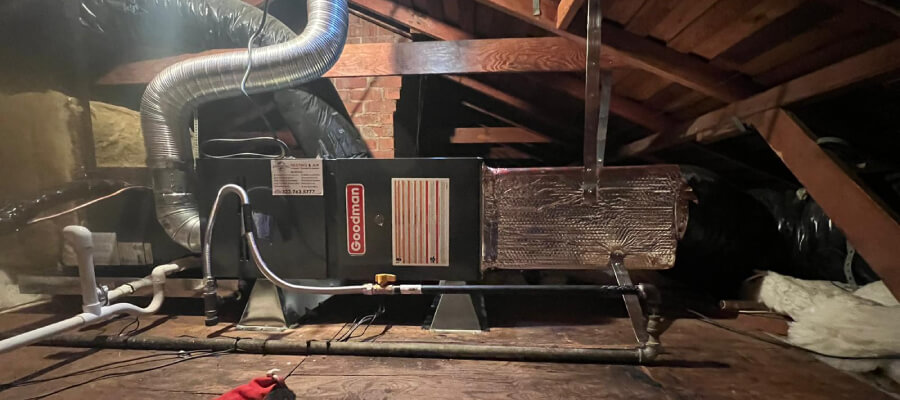
Evaluating Insulation
Effective insulation helps maintain a comfortable temperature by reducing heat transfer between your home’s interior and exterior. Assess your home’s insulation by checking for drafts, gaps in window seals, and the thickness of attic insulation. A well-insulated home will require a smaller HVAC system than a poorly insulated one.

Considering Climate
Los Angeles experiences a Mediterranean climate with warm summers and mild winters. When selecting an HVAC system, consider the average temperature and humidity levels in the area to ensure the system can adequately maintain a comfortable living environment.
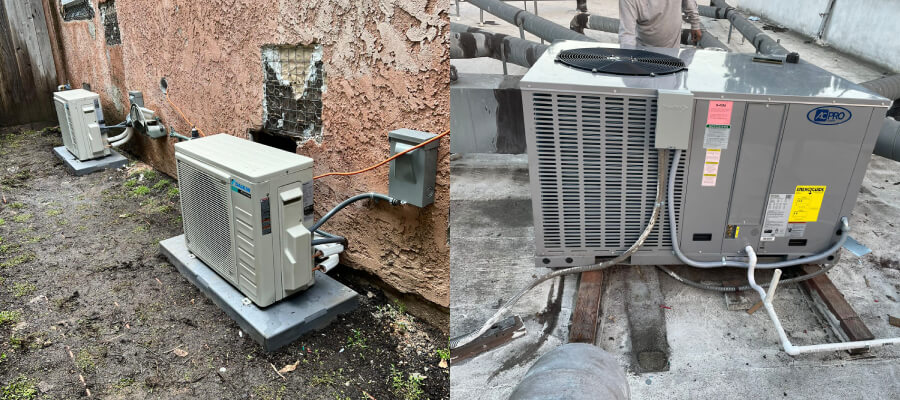
Calculating HVAC System Size
Once you have gathered the necessary information, you can calculate the required HVAC system size using the following steps:
- Determine the BTU (British Thermal Unit) Requirements: Use the square footage and insulation information to calculate the BTU requirements for your home. You can consult an HVAC professional or use an online BTU calculator for guidance.
- Choose the Appropriate System Type: Based on the BTU requirements and local climate, select the right type of HVAC system, such as a heating installation or air conditioner.
- Factor in Additional Considerations: Consider additional factors, such as the number of occupants, window size and orientation, and any specific heating or cooling needs, to refine the system size.
After determining the appropriate HVAC system size, you can explore various financing options and consult a residential HVAC expert to ensure a smooth installation process.
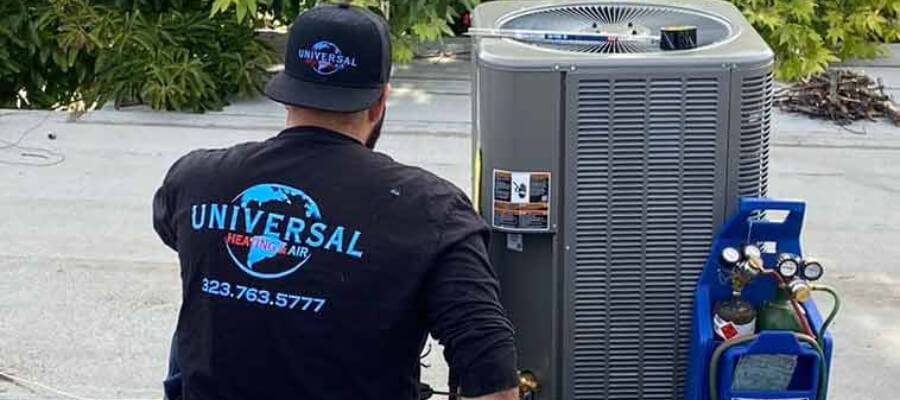
Conclusion
Properly sizing your HVAC system is crucial for maintaining a comfortable and energy-efficient home. By considering square footage, insulation, and climate, you can accurately calculate the appropriate HVAC system size. For further assistance and expert advice, contact Universal HVAC Los Angeles to ensure you choose the right system for your home.
Maintaining Your HVAC System
Once you have selected and installed the appropriately sized HVAC system, it is essential to perform regular maintenance to ensure its longevity and efficiency. Consider scheduling residential AC maintenance to keep your system in optimal condition. In addition, keep an eye out for signs that may indicate the need for home AC repair or emergency HVAC repair.
Key Maintenance Tips
Here are some essential maintenance tips to keep your HVAC system running smoothly:
- Change Air Filters Regularly: Replace or clean air filters at least once every 90 days to ensure optimal airflow and efficiency.
- Inspect and Clean the Outdoor Unit: Clean the condenser coils and remove any debris from around the outdoor unit to maintain peak performance.
- Schedule Regular Tune-ups: Arrange for a professional HVAC technician to inspect and tune up your system at least once a year.
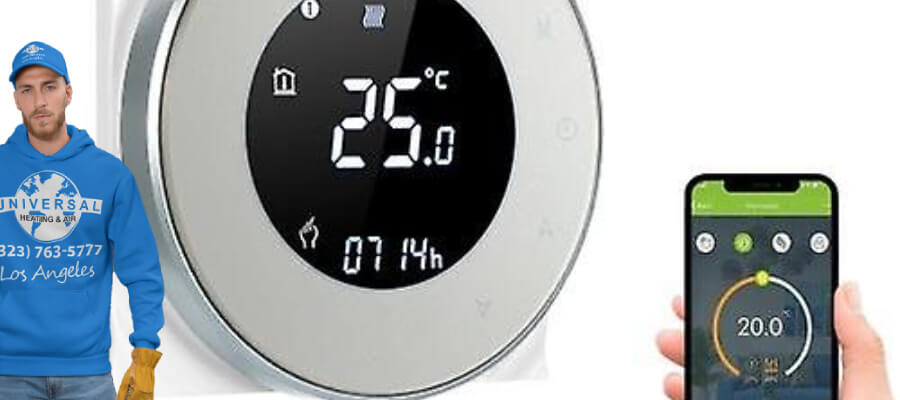
Enhancing Your HVAC System with a Smart Thermostat
A smart thermostat is an excellent addition to your HVAC system, offering increased control, energy savings, and convenience. These thermostats can be controlled remotely via a smartphone, enabling you to adjust the temperature even when you’re away from home. Smart thermostats such as Honeywell, Google Nest, and Wyze can also learn your schedule and preferences, automatically adjusting the temperature for optimal comfort and energy efficiency. For assistance with selecting and installing a smart thermostat, consider consulting experts in thermostat repair and installation.
Frequently Asked Questions
 How big of an HVAC system do I need for my house?
How big of an HVAC system do I need for my house?
To determine the appropriate size of an HVAC system for your house, consider factors such as square footage, insulation, and climate. Calculate the British Thermal Units (BTU) required for your home based on these factors and consult an HVAC professional for further guidance.
 How many square feet does a 3-ton AC unit cover?
How many square feet does a 3-ton AC unit cover?
A 3-ton AC unit can typically cover an area of 1,800 to 2,100 square feet. However, factors such as insulation, window size, and local climate may affect the cooling capacity of the unit. Consult an HVAC professional to ensure that a 3-ton AC unit is appropriate for your specific needs.
 How many square feet does a 5-ton AC unit cover?
How many square feet does a 5-ton AC unit cover?
A 5-ton AC unit can generally cover an area of 3,000 to 3,500 square feet. As with the 3-ton unit, factors such as insulation, window size, and local climate may influence the cooling capacity. It’s essential to consult an HVAC professional to determine whether a 5-ton AC unit is suitable for your home.
 What size AC unit would I need for a 1,800-square-foot house?
What size AC unit would I need for a 1,800-square-foot house?
For a 1,800-square-foot house, you may need an AC unit with a cooling capacity of around 3 tons. However, it’s crucial to consider factors such as insulation, window size, and local climate when determining the appropriate AC unit size. Consult an HVAC professional for a more accurate assessment.
 What happens if my HVAC is too big for my house?
What happens if my HVAC is too big for my house?
If your HVAC system is too big for your house, it may lead to short cycling, which means the system will turn on and off more frequently. This can result in uneven temperature distribution, increased wear and tear on the system, reduced energy efficiency, and higher energy costs. It’s essential to choose the appropriate HVAC system size to avoid these issues.
 How do I know if my HVAC is big enough?
How do I know if my HVAC is big enough?
To determine if your HVAC system is big enough for your home, consider factors such as square footage, insulation, and climate. If your system consistently maintains a comfortable temperature and humidity level without short cycling or excessive energy consumption, it is likely sized correctly. If you’re uncertain about your system’s adequacy, consult an HVAC professional for an assessment.
 Will a bigger AC unit cool my house better?
Will a bigger AC unit cool my house better?
While it may seem logical to assume that a bigger AC unit would cool your house better, this is not necessarily the case. An oversized AC unit can lead to a variety of issues, making it less efficient and potentially less effective at maintaining a comfortable temperature in your home.
Here are some reasons why a bigger AC unit may not be the best choice:
- Short Cycling: An oversized AC unit is more likely to short cycle, which means it will frequently turn on and off. This can lead to uneven cooling, higher energy consumption, and increased wear and tear on the system.
- Decreased Efficiency: A larger AC unit will consume more energy, which results in higher utility bills. Additionally, short-cycling reduces the system’s overall efficiency, leading to further energy waste.
- Inadequate Dehumidification: An oversized AC unit may cool the air quickly, but it may not run long enough to effectively dehumidify the space. This can result in a cold and clammy indoor environment, which is not only uncomfortable but can also contribute to mildew growth and mold.
- Higher Installation and Maintenance Costs: A larger AC unit is typically more expensive to install and maintain, and it may require more frequent repairs due to increased wear and tear.
To ensure optimal cooling and energy efficiency, it is essential to choose an AC unit that is appropriately sized for your home. Consult an HVAC professional to determine the correct system size based on factors such as square footage, insulation, and local climate. By selecting the right AC unit, you can maintain a comfortable living environment while minimizing energy consumption and extending the lifespan of your system.
Summary
Choosing the right HVAC system size for your Los Angeles home is crucial for energy efficiency, comfort, and system longevity. By taking into account your home’s square footage, insulation, and local climate, you can accurately determine the appropriate system size. Remember to maintain your HVAC system regularly and consider installing a smart thermostat for added convenience and energy savings. For professional guidance and assistance throughout the process, contact Universal HVAC Los Angeles.
To learn more about HVAC systems, explore our gallery of HVAC installations in Los Angeles and stay informed with our HVAC professionals blog.

